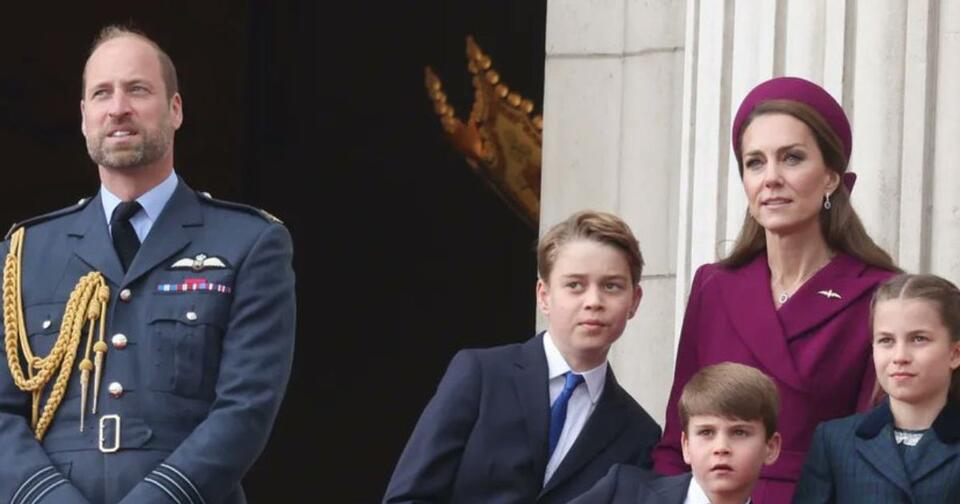Prince William and Princess Catherine, known for their strong public image, have faced occasional rumors about marital troubles, especially fueled by the 2024 speculations surrounding William’s alleged affair with Rose Hanbury.
These rumors gained traction when Catherine vanished from the public eye following abdominal surgery in January 2024, leading to widespread speculation about the state of their marriage. William’s solo release of an official statement during the Israel-Gaza conflict, without Catherine’s signature, only fanned the divorce rumors.
Later, Catherine reemerged with the revelation that she had been undergoing cancer treatment, silencing many speculative voices. Yet, the question remains: what would happen if William and Catherine were to divorce?
One major consequence of a split would center on Catherine’s royal status. The most visible change would be the potential loss of her royal title. Historically, during divorce, royal titles have been revoked, Princess Diana lost the “Her Royal Highness” (HRH) prefix after divorcing King Charles III, and Sarah Ferguson, formerly HRH The Duchess of York, faced the same.
Queen Elizabeth II altered the law in 1996 to strip these titles upon divorce; prior to that, they were retained regardless. King Charles III could theoretically reverse this adjustment and allow Catherine to keep her title. Even without the HRH honorific, Catherine may remain an unofficial royal family member, just as Diana continued to be regarded post-divorce, according to the royal family website. Importantly, Catherine would still be the mother of the future monarch, which carries its own significance.
READ MORE:LGBTQ+ Community Slams Snoop Dogg for His Shocking Take on Queer Representation in Kids’ Movies
Custody of their children adds another layer of complexity. Despite parental roles, Catherine and William technically do not have legal custody of their children. As per an archaic law dating to King George I’s reign in the 1700s, custody legally belongs to the reigning monarch, currently King Charles III.
Royal expert Marlene Koenig explained that this rule persists, involving the monarch having significant authority over royal children, even influencing travel decisions during William and Harry’s youth. Diana, for instance, was denied permission by the Queen to take the princes to Australia, illustrating the monarch’s ultimate say.
Should William and Catherine divorce before he becomes king, Catherine would likely lose what unofficial custody she currently holds over their children, unless Charles amends this law.
Despite these challenges, co-parenting would probably continue. Previous instances show that King Charles III and Diana maintained a functioning co-parenting relationship despite their bitter divorce.
Jennie Bond, former BBC royal correspondent, emphasized Catherine’s nurturing, child-centered approach to parenting, saying it “is an idea built on mutual respect, understanding, patience and allowing the child to lead the way.” She believes William has learned from Catherine’s style and would follow her lead in parenting. T
Financial concerns would probably be minimal for Catherine if the marriage ended. Historical settlements indicate former royal spouses receive substantial financial support: Diana reportedly received $22.5 million upfront and an annual $600,000 for her office nearly three decades ago.
Sarah Ferguson received a smaller but significant £2 million after her divorce from Prince Andrew. Catherine, as the future queen, could expect a settlement comparable to Diana’s. Even if financial support were cut off, Catherine could likely rely on her close family, including her sister Pippa Middleton’s wealthy husband, hedge fund manager James Matthews, and possibly her parents, who, despite financial struggles, are not destitute.
Media scrutiny would undoubtedly intensify if Catherine divorced William. History shows that leaving the royal family often increases paparazzi interest rather than diminishing it. Diana’s tragic death during a paparazzi chase highlights the dangerous level of media obsession.
Bearing Diana’s former title post-divorce would invite relentless press attention toward Catherine. If the separation is as tumultuous as Charles and Diana’s, her ability to live a private life outside palace walls would be nearly impossible. Catherine’s choice to remain in the U.K. would not shield her from such public fascination, as seen with Prince Harry and Meghan Markle, who continue facing intense media focus even after relocating abroad.
Regarding future relationships, Catherine would have considerably more freedom to remarry than William. The monarchy historically forbade remarriage after divorce, but since Catherine would become a civilian, she could marry freely.
William, in contrast, would likely require King Charles III’s permission to remarry, just as he did with his marriage to Camilla Parker Bowles after divorcing Diana. Past precedents show that royal remarriage ceremonies can be more subdued, such as Charles and Camilla’s civil ceremony or Princess Anne’s marriage in Scotland to bypass Church of England rules.
Lastly, despite what divorce tabloids might expect, it is improbable that William and Catherine would publicly air their problems after a potential split. Both have shown reluctance to engage with revealing memoirs or interviews that could harm the monarchy and therefore, even if they do get divorced, chances of public drama remain low.
